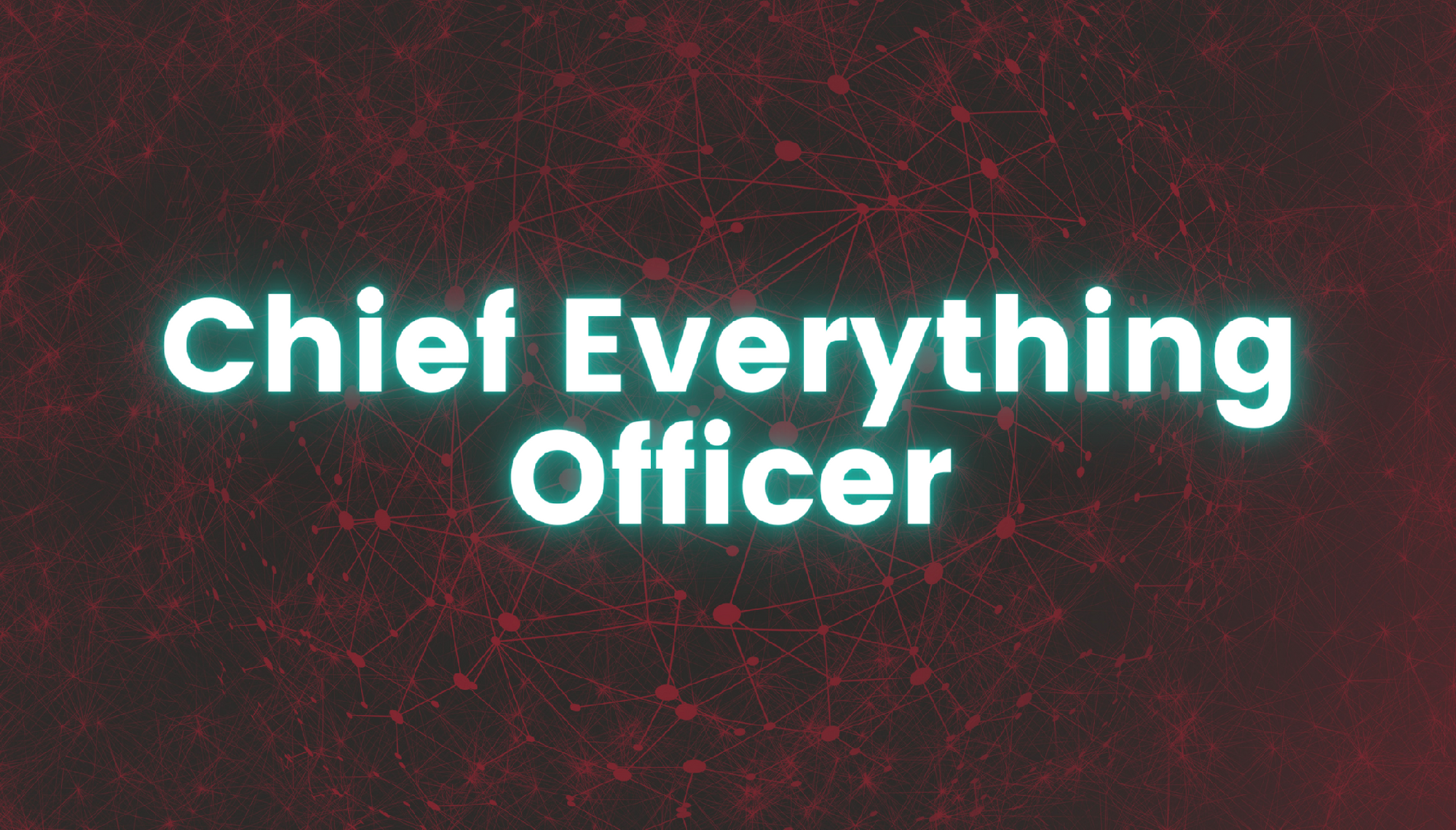I am writing this post in response to an interesting one I saw on Medium, where the author was pointing out some good points for CEO's. As they should be focused on execution, rather than being everywhere at once.
While I think that Carolyn Jenkins makes some valid points, and the purpose of her blog post was fulfilled; There was a point I felt was missing from this concept. Perhaps it is because the feeling I kept getting when reading her post, and the Forbes post she linked to, was that of the "Specialist" mindset.
I've spoken about it a lot over the course of my blogs and podcasts. Where people see generalism as a negative, i.e. "Jack of all trades, master of none.". Instead of the full quote "Jack of all trades, master of none, but oftentimes better than a master of one."! When you look at it in the full phrase, then the meaning changes drastically.
Why I Think Chief Everything Officer Should Exist
Think about it, someone who knows the inner workings to all parts of your company? That is super helpful, and if they aren't the CEO, then they don't have to stress about making the decisions. Simply make sure if anyone needs help in the company, that they can have someone to rely on.
Someone who is versed in each field is rare, let alone actually well qualified. However there are instances where that happens, especially in the startup CEO phase, where the founder had to wear multiple hats. I always think entrepreneurs are the generalists of the modern era for this reason.
What if there were two cofounders, and while one focused on the backend. The other ran things in front facing appearances, but they had helped out in each department while growing. Eventually you get to a point where you have to just delegate it off. Let the former be the executive, and the latter everything officer.
They know the company in and out, and they essentially act like a project manager. One that can help the accelerated growth, and make sure no one is overwhelmed. It is a matter of changing roles at the time of big growth, in order to maximize their capacities in the company. If something goes wrong, then the latter could just come up to help.
Internal Vs External
"Connecting those dots — between internal and external, between leadership and the frontline, and between all the various functions of the business — is the critical work of the CEO."
-Carolyn Jenkins
I think both executive and everything officers need to be able to connect the dots. Being a "superconnector" is crucial for seeing opportunities, networking, and growth. Just the type of opportunities changes for each person.
Seems a bit of a Longshot
I can't help but think in this post that maybe this won't apply to most companies. That fear is generated by the specialist society I grew up in, but my intuition and all of this work bring polymathy to the forefront of people's minds, says something else. Think of a person who can fluidly move between departments, sharing information, and have an octopus-like quality in reach.
Who knows you may already have someone in your company who has their hands in each cookie jar. They just need a push to learn them more deeply, and to step up to the plate. It doesn't have to be a cofounder situation like mentioned before, but someone completely new. As long as they have the capacity for it!

![Official Website for Dustin Miller PolyInnovator [LLC]](https://polyinnovator.space/content/images/2025/03/polyinnovator-logo-2024.png)












